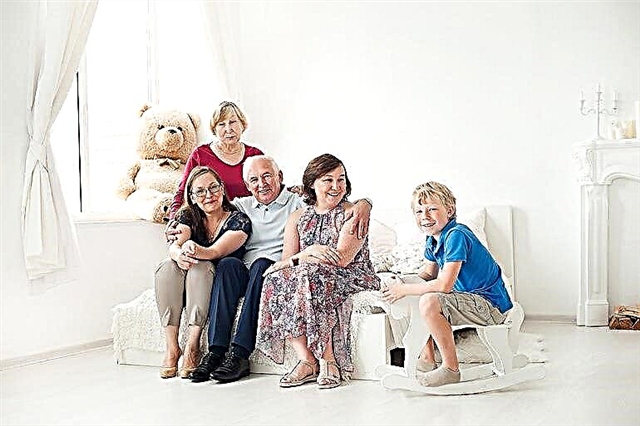“Is it possible to talk to your mom like that, boy?”, “Who’s shouting like that?” - favorite remarks of strangers towards your child. Some passers-by are very fond of making comments to other people's children. In this case, what is the correct behavior for the parent?

First you need to prioritize
The easiest way is to shake your head reproachfully, agreeing with a stranger, or to chastise your child for a committed offense, maybe even insignificant. Most often, parents do this. They will pull up the reproachful baby and forget about this situation in a few minutes. But children remember this. It seems to you that the child does not care, but look at the situation from the outside - you, in fact, go over to the side of offenders, strangers and strangers, and together with them you scold your own child! Is this not a betrayal?
Imagine the situation: in a hurry, a young wife paints her eyes, and as a result, the arrows turned out to be crooked. She and her husband enter the elevator and a neighbor starts commenting: “Have you seen how your wife let the arrows down? Does she look in the mirror or what? " And the husband, instead of taking the side of his half, will answer: "Yes, she is clumsy with us, she constantly brings her eyes down!"
Isn't it a ridiculous and funny situation? And adults do just that with a child. Before you immediately react to the provocation of a bystander about your baby, think about who is more dear to you - some kind of aunt or your child?
To blame or not to blame?

If strangers give you advice or comment on a case, you should understand when to listen to their comments and when to ignore them. After all, people are sometimes indignant for a very significant reason and sometimes on business. The reasons are the most typical - “Your child is throwing sand”, “He is throwing stones at my child” or something else that you yourself did not notice and that:
- poses a threat to the health of your child;
- poses a threat to the health of others.
Assess the situation soberly and understand who is to blame. Maybe it's a child, maybe it's your fault that they overlooked, or maybe an absurd misunderstanding. Be that as it may, even if your child is naughty, you do not need to immediately scold him in front of strangers. Don't humiliate your own child! Say thank you to the “counselor”, step aside with the child and talk privately without threats, slaps or shouts. After all, your shouts will not change anything, you will only be ashamed in front of people, for the arranged performance.
If you are very angry, it is best to take your child out of the playground and talk to him at home. On the way home, you will surely cool down and perceive things more sensibly.
Not guilty
And if the child is not at all in business? Maybe for you and your child some behaviors are absolutely normal - what? Swear? To arrange a scandal in public (conflicts on the playground: how not to lead to a fight)? It is highly discouraged to do this, because the child is looking at you. You are an authority for him, and he learns from you, absorbs everything you do and will repeat your behavior in life. Teach your toddler to be polite, but have a point of view and defend it. You can thank the passer-by for the advice and add your "but". "Thanks for the advice, but I will deal with my child myself", "Thank you, but you do not need to worry about us, we will handle everything."
Even if such answers do not satisfy the same neighbor or passer-by, it does not matter. It is important for you not to destroy the trust and that bond between you and your children. Since for all children - you, as a parent - are support, protection, authority and best friend - who will understand everything, protect and will not give offense.
- How to correctly and tactfully make a remark to someone else's child
- 7 stupid tips from strangers for a young mom



